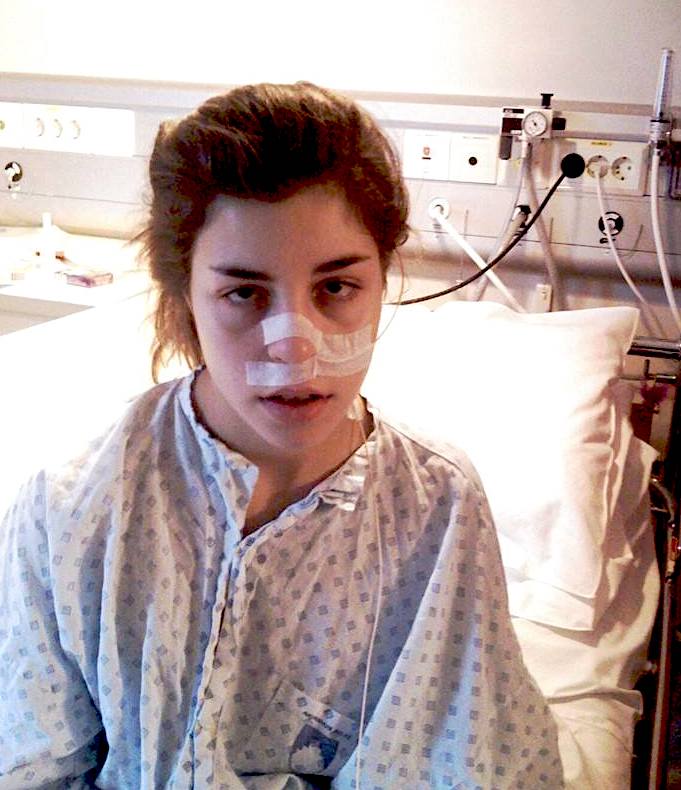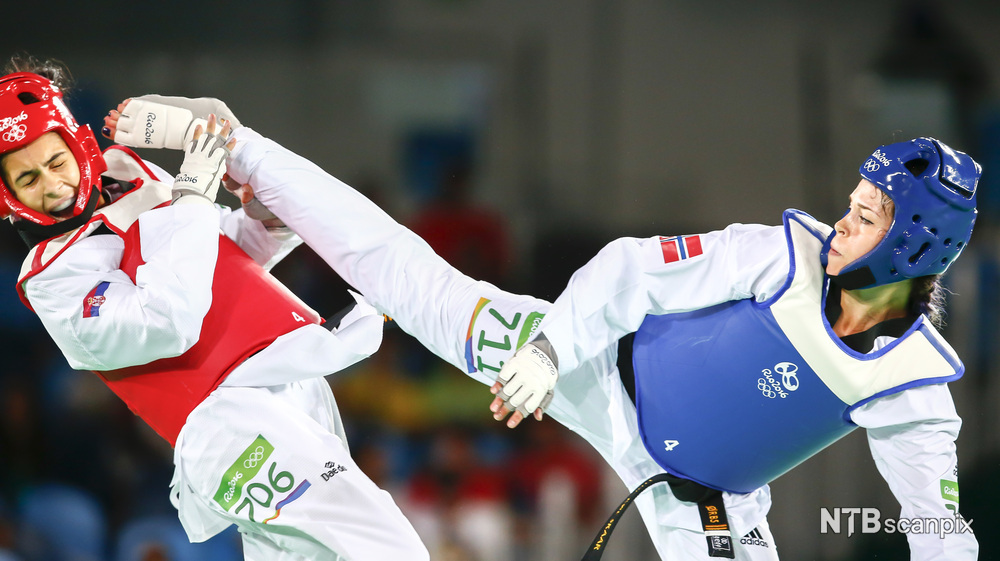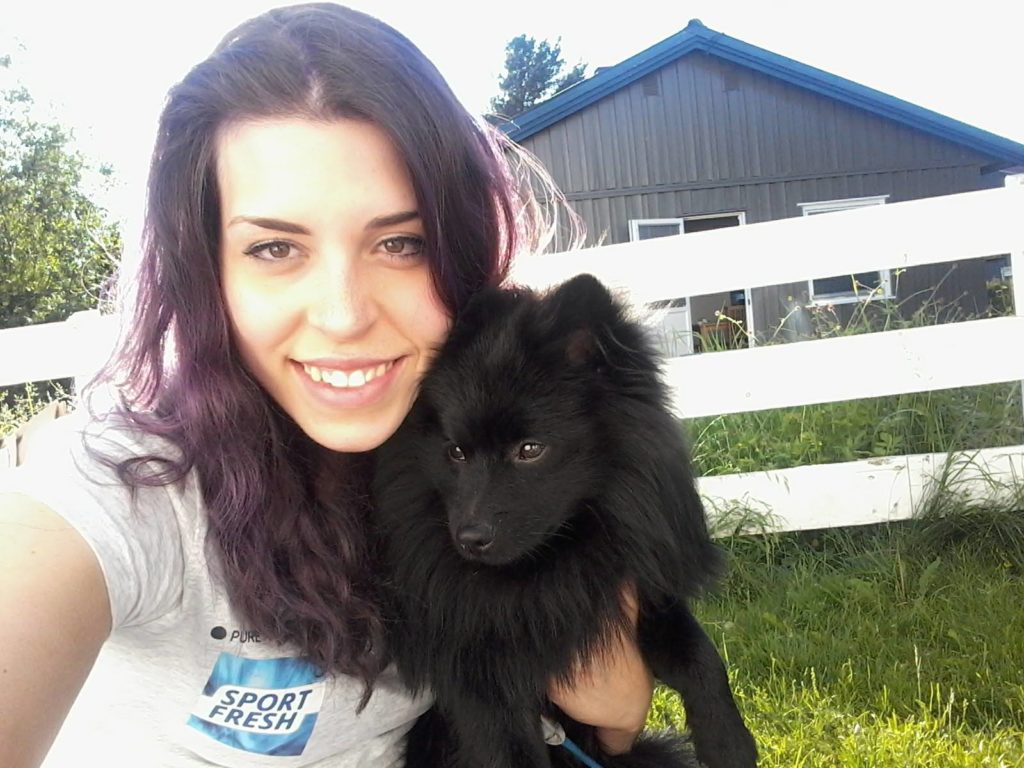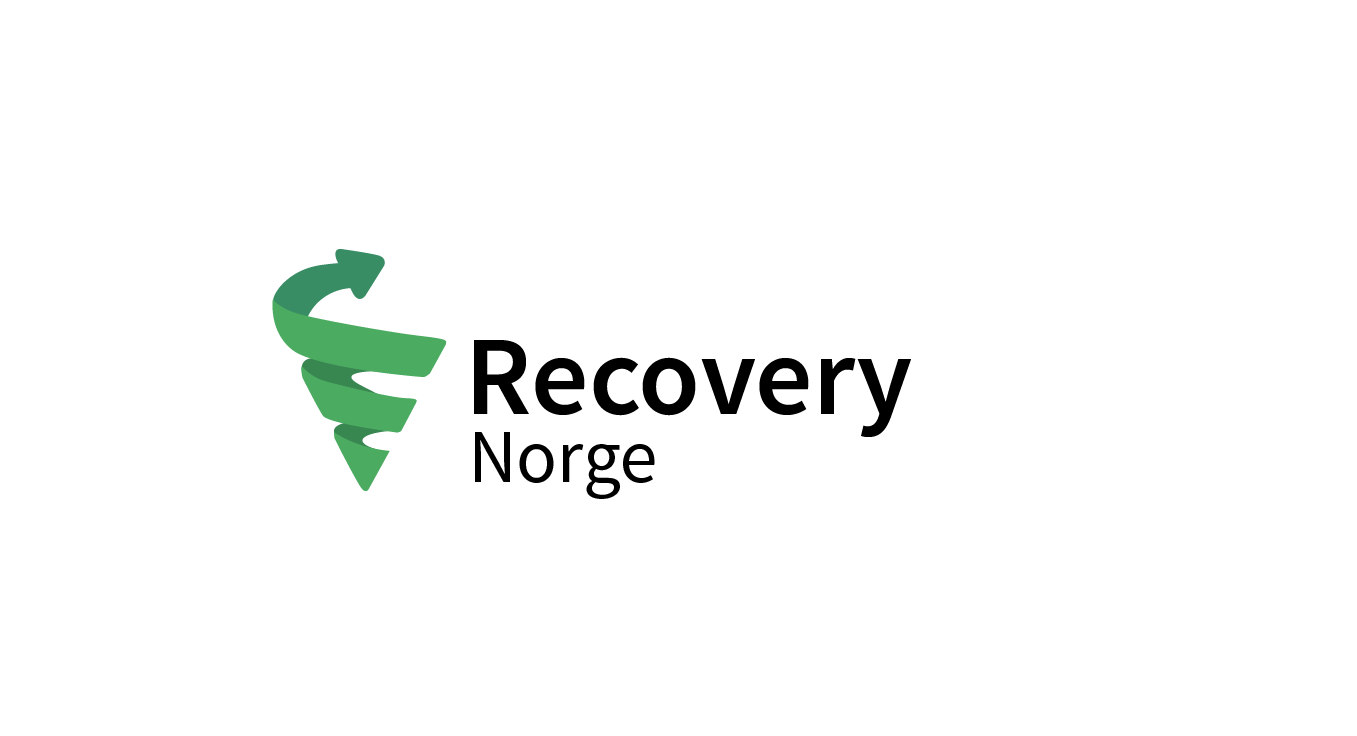Author: Tina Røe Skaar
My body is in a constant adrenaline rush. I haven’t had spare energy to go to class, and I am doing my studies online. I am unable to work and rarely see my friends and family. I am living off public support and the support of people around me, and I am forced to prioritize my energy in order to keep living the way I am now… Because today, I’m in my fifth year as a member of the National Taekwondo Team Norway. I work out up to 24 hours a week, travel to competitions up to 100 days a year, and I was the only Norwegian taekwondo fighter in the Olympic Games in Rio de Janeiro last year.
An absurd thought
My life eight years ago, despite all of this, was in certain ways a bit similar, as I also then had to prioritize how to spend my energy. However, my days then mainly consisted of resting in bed, being exhausted, sleeping and managing pain. It certainly wasn’t exercising four hours a day, sleeping only for restitution between sessions and preparing for the next big championship. Comparing the life I have now to competing in the Olympics back then – it seems absurd. But here I am – an Olympic athlete, a way of life I could then only fantasise about.

The media has always been curious about my ME-past; the contrast of bedridden to fulltime combat sport practitioner has been the ultimate feel-good story. I’ve been interviewed several times in the biggest newspapers and magazines, but rarely have I had the opportunity to tell my story in my own words. I don’t think I would call it a feel-good story, but I certainly would not have been without my teenage experience either – I hope that fact will shine through here.
Could not fit in
As a 14 year old girl, the only place I was truly happy was during training or travelling with my taekwondo club. Middle school was like a broken puzzle to me, I felt like I would never fit in. As a shy, and a little mischievous, tomboy who had no interest in fashions or trends, I was quickly isolated and bullied.
I was isolated and bullied.
People spread false rumours about me so that even pupils I didn’t know were talking about me behind my back. My old friends started ignoring me and the boys at school teased me for my martial arts so that I ended up spending a lot of breaks crying in the bathroom. I decided school was for schoolwork and nothing else, and in my day I would focus on getting home, having dinner and finally getting to practice. Practice was always awesome – that was where I could be myself! I worked out every day to get that feeling.
Terrified
The illness initially came into my life in the form of what we thought were frequent colds. I was sick for a while, then fine, then sick. The periods of illness became longer and I went to my General Practitioner (GP). Apparently, there was nothing wrong with me. I asked whether I could still work out and was told to go for it, so I did. Then the chest pains came. Stress about school did not help, neither did the stress over not working out enough.
Stress about school did not help, neither did the stress over not working out enough.
I missed weeks and then months of school, went back to the GP who, visibly fed up, looked me up and down and said ‘What’s wrong today, then?’. No one believed me, no solutions were offered, there was no working out, no joy and soon no motivation left. It all felt hopeless.
One evening I got acute chest pains, so bad that I couldn’t breathe. My dad rushed me to the hospital, and I remember my whole body arching in the backseat from the pain. Everything was numb and tears were streaming down my face. In that moment I was so afraid that this might be the end. I was so sick of not knowing what was wrong with me, of not feeling well enough at school, of not being able to go to practice and constantly letting my team mates down, of putting up a brave face about school for my mom and dad, while they were spending hours trying to figure out what was wrong with me. If this really was the end, I had so much unfinished business and so much left to experience. I was terrified.
ME diagnosis – a relief
They gave me pain killers in the emergency room at Akershus University Hospital and began a thorough check-up. I was there over two weeks and after that my body was so spent that I pretty much had to stay in bed all the time with a general feeling of being ill. But even if I had never been worse, I was convinced it was going to get better. After a short talk between my dad and a female doctor, she strode confidently into my room, looked at me, pointed and said ‘you have ME!’.
To hear that there was an explanation for how I was feeling, that it wasn’t just me getting it all wrong – was an unbelievable relief. My parents had suggested ME to my GP earlier in the hope that it might be useful, but they’d been brushed away and asked not to interfere. During the check-up and all the testing at the hospital, they discovered that I had recently had mononucleosis, and I had worked out every chance I got when I was feeling a bit above water, which was not ideal. It felt like this situation could have been avoided and revealed already at the GP’s, but I felt no bitterness. Even though it would be a whole year before I got the diagnosis on paper, and another year and a half before I found a way to get better, I was just relieved that someone finally believed me and that we had something tangible to work with now.
Could sleep around the clock
I missed almost all of middle school, and was home schooled three hours a week when I was up to it. I spent most of my time sleeping, often 16-30 hours at a time. It was always in a pitch black room with all the windows covered up with blinds, curtains and sheets. I almost constantly had a high pulse, was short of breath, got dizzy every time I got stood up and had an ever-present pain in my muscles and joints. My mom took time off work to stay home with me, and she always came into bed with me and held me those nights the pain was unbearable – I am so grateful for that now.
It was always in a pitch black room with all the windows covered up with blinds, curtains and sheets.
I remember one of the hardest things was showering and washing my hair. I always got so dizzy from standing up, especially when I had to wash my long hair at the same time. It almost always ended up with my mom finding me curled up on the shower floor crying. The solution ended up being a shower chair for the elderly, and it meant a lot to me to be able to (most of the time) wash my own hair. That way I didn’t have to sit in the bath tub in suffocating hot water, while my mom washed the hair of 16-year-old me twice a week. Still, the shower chair, along with the disability card I received so I wouldn’t need to walk too far, finally killed the last sense of youth I had left.
The helplessness of others
I remember well how people acted around me, and how it felt seeing and chatting to my younger siblings – so strange. I was away so much, and at four and seven years of age they were wondering where on earth their big sister disappeared to all the time. I was in the same house, but in my darkness on the top floor. I was constantly met with all kinds of questions. Some half-hearted messages from classmates (that I’m sure were spurred on by their parents) to hear how I was doing. Grown-ups looking down at me with sympathetic eyes if I was outside for a walk. So many looked at me with that same helplessness that I was trying to avoid. I can’t blame those people who only wanted to be supportive, but at the same time I often felt that it only made things worse.
Searching for a cure
We were offered help and guidance at the hospital, but few actual treatments were available. They gave me a ‘cocktail’ of medication that I took for a while, but we gave up on that as I only kept getting worse. My mom and dad searched around the clock for ways to help me. We tried most things. We tried the famous stinky papaya capsules that were said to have worked for some ME patients, without results. I went to an acupuncturist that had helped me with sports injuries in the past, but the treatments had no effect now. The naprapathy we tried next only revealed that my back was starting to get crooked, which made sense considering how much time I spent in bed.
We tried the famous stinky papaya capsules.
Mom was my closest carer when it came to all the challenges at home, the emotions and the tough times. She took time off work and was always there to cheer me up, saying we would keep looking for a way out. It sounded bittersweet to me, but always helped me focus and calm down. I was frustrated a lot of the time, but also convinced that I was someday going back to practice and train with my team mates again. I kept trying everything, however difficult the days might be getting.
Alternative medicine seemed the only option left, and at one point we even visited the famous healer of Morten Harket (the singer of A-ha), again without results. We also came into contact with NLP-practitioners, and I remember very well when a female therapist came home to us while I was lying on the sofa. She asked me to picture all the good things and all the bad things in my life, imagine holding them one in each hand, and to give them a smell, a shape and a colour. Lying there after the session picturing a little white, shining ball in one hand and a floury red ball stinking of stale air in the other, sadly gave me no comfort or improvement.
Not ready
Luckily, the doctors at the hospital followed my development all the while, and when my dad asked about a course he’d read about online, Phil Parker’s Lightning Process, it was actually my doctor that gave us the courage to try it. There were no other obvious alternatives at the hospital, and when so many had recovered after such courses those days, the question was more ‘Why not?’ My dad quickly contacted Aktiv Prosess, which was a new company with two newly licensed LP instructors who had set up in Norway.
It was actually my doctor who gave us the courage to try LP.
When I talked to the instructor for the first time, I was told that I was not yet ready. She was probably right. After two years of illness, practically my only focus these past months had been looking forward to a month at our cabin with my family and my best friend. I was looking forward to fishing, swimming, sunbathing, hiking and boating in the fjord. I was very optimistic. After two weeks there, however, during which I was able to do about 15% of what I had wanted and otherwise been in bed, I decided I’d had enough. I wanted to give this short course of a few days a real chance, be open and really believe that this might help. When we got home, we contacted the instructor again, who said I could have a space now. In December 2009, my dad and I took the three-day long LP course.
New motivation on the third day
The first day of the course was tough, and I was uncomfortable being surrounded by so many people in the same situation as me. The second day I felt a little lighter, but things were still hard. The third and last day of the course, I finally felt different. I had new motivation, I sensed an energy and control I hadn’t felt in years. I had now gotten the tools and learned how to change my mental patterns and stop this apathy, and I finally felt like myself again.
Two weeks after the course I carefully started exercising, all the while prepared for relapses. However, I was soon back in the taekwondo club, and two months later I participated in my first Norway cup in four years! I lost the final with one point and won a silver medal.
A great victory
Suddenly everything seemed possible again, and my dreams were not so unrealistic after all. My next goal became to be appointed by the National team to compete in the Nordic Championship a year later. My school set up an adjusted program so that I could complete middle school and start high school in August. One month later I finally got my black belt. Life was going my way. And one year after the Lightning Process course in December 2010, I not only competed in the Nordic Championship, but I became Nordic Champion in Nannestad – my hometown! This, in a career so far filled with successes, has been one of my greatest victories and proudest moments so far – the time I won my life back.
A time a in limbo
The years of illness were for me a limbo where time stood still, while at the same time everything was slipping past me and away. I remember the child psychologist at the hospital asking me to keep a diary, but after writing “slept till four in the afternoon, got up, crawled down the stairs. Had dinner with siblings. Got into bed. Spent an hour and a half on my computer. Slept”, for four days in a row, it only became a reminder of how stuck I was with life just passing me by.
Not only was everything painful and hard, but I felt totally helpless, not believed by anyone, and a burden to the people around me. In my toughest hours, my thoughts would get away from me and I could get anxiety attacks. Thinking of those who I thought were my friends who didn’t show up, my team mates travelling and winning medals, rising through the grades and getting their black belts, getting into the National team while I was in bed… I could sometimes lie exhausted on the floor crying “I can’t take it anymore! I can’t!” – and meant it.
Luckily, my mom and dad were there, and they made sure I always found some light in the dark times, when the hopelessness was at its worst and I didn’t want to go on. I am eternally grateful for the support of my parents and family – they were the brightest points in my existence then.
Rabbits and friends
There were also some others. I remember not being able to go to church for my own confirmation, so the minister came home to us to perform the ceremony in our living room and told me it would all work out. He gave me the feeling that I shouldn’t worry too much about this. Also, when I, who had probably killed 50 goldfish through my childhood, got rabbits from my mom, they gave me an added reason to crawl carefully down the stairs on good days, to lie on the living room floor with my rabbits and siblings. And the few times when I was up to having friends over, I forgot about my situation for a while, even though I paid a painful price the following days.

I would not have missed it
I am grateful for having been so low in the pit. The illness has given me more than it took, and that perspective, what I’ve learned about myself and the joy in life I now have, are things I would not want to be without now. It was not voluntary, and I don’t wish this experience upon my worst enemy, but I am glad today for what I went through. In my case, the Lightning Process was what would turn everything around, but I hope everyone who finds themselves in the pit and somehow manage to get out, can appreciate the journey.
The illness experience itself, but also the tools LP taught me, have made me the athlete I am today. I don’t think I would be where I am now, as an Olympic full-time taekwondo practitioner aiming for her second Olympic Games, if I hadn’t spent all those years nursing my dream. To be a top athlete and knowing that things will never get worse than ‘that time’, makes coping with everything else easier.

Tina has, after this text was written in 2018, quit top level taekwondo, but she is still well from ME/CFS.
